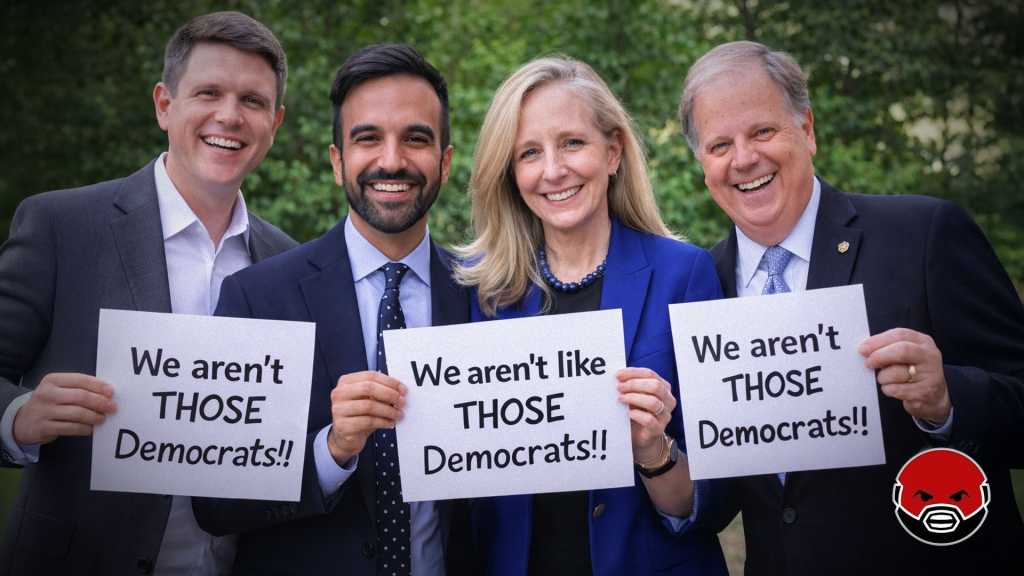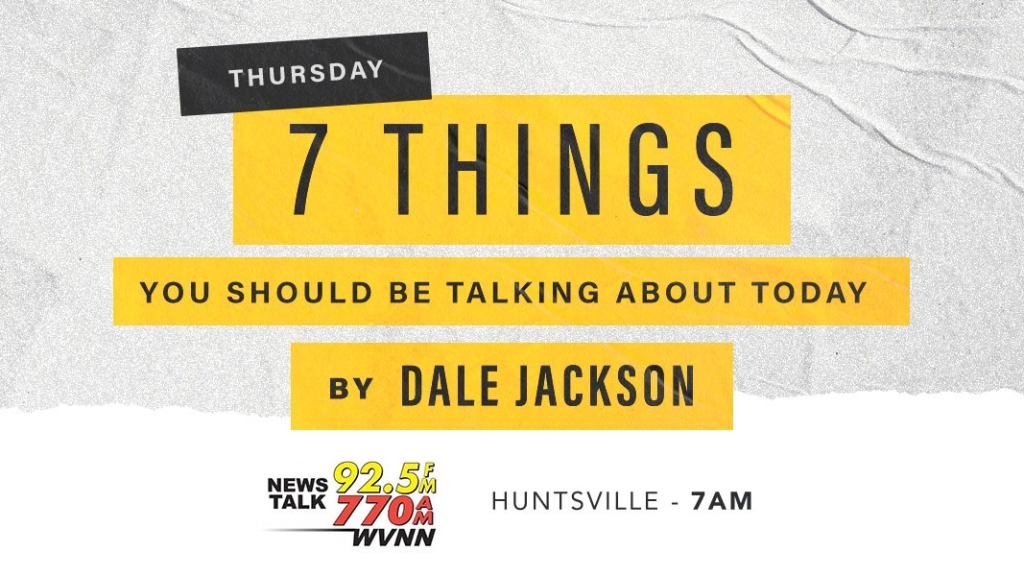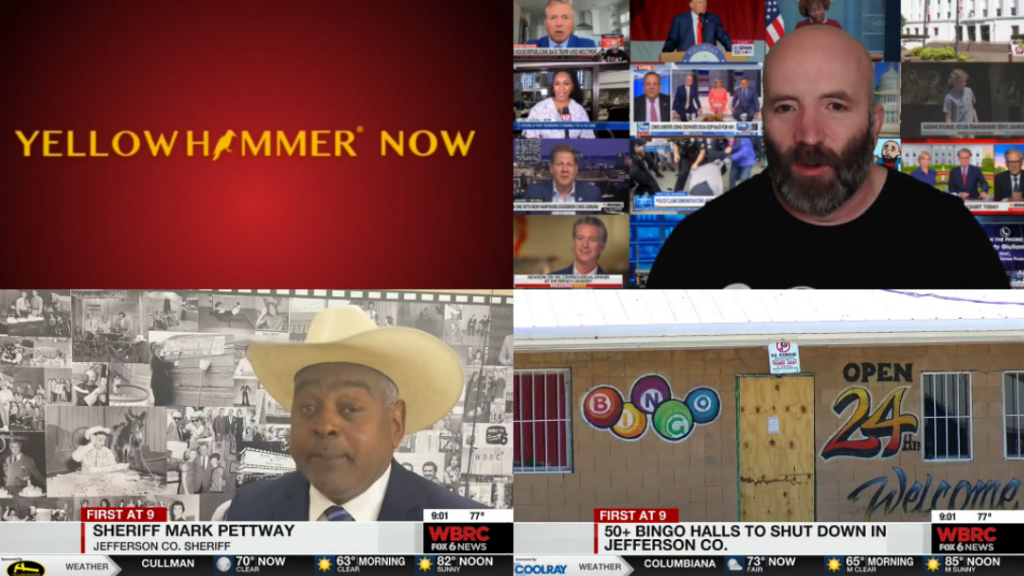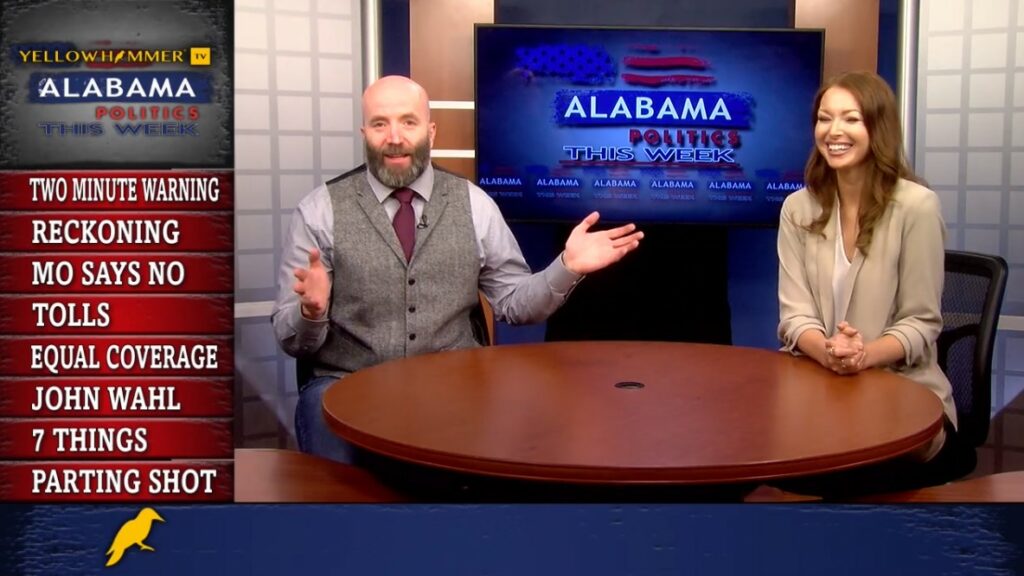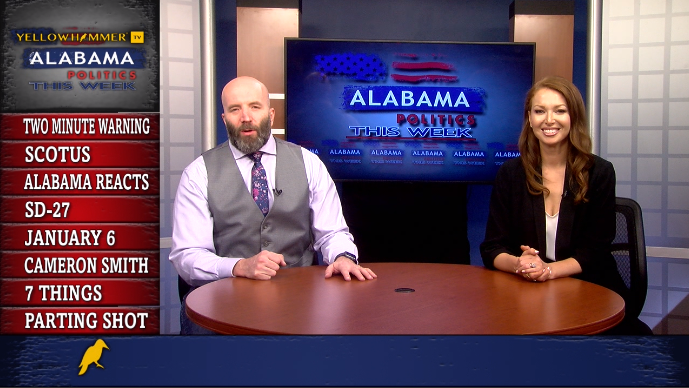7. The previous inaction by Sheriff Mark Pettway on illegal gambling in Jefferson County may be motivated by his brother’s $50,000 loan to his campaign
— Pettway is one of the many sheriffs in Alabama that seem uninterested in enforcing the clear gambling laws of the state of Alabama, which has drawn the ire of Alabama Attorney General Steve Marshall. Interestingly, Bruce Pettway, the sheriff’s brother, created the appearance of a conflict of interest after it became known he lent his brother’s campaign more than $50,000 during the campaign and had received the green light to open a 3,000 machine electronic bingo casino in a closed Lowe’s. That license has apparently now been canceled and the cost refunded, but it remains unclear if Sheriff Pettway will start enforcing the law.
6. State Sen. Whatley (R-Auburn) is sponsoring a bill to end civil asset forfeiture
— Civil asset forfeiture allows officers to seize money, property or possessions if they’re believed to have been involved in a crime, which is allowed under federal and Alabama state law. Whatley argues that civil asset forfeiture turns the principle of innocent until proven guilty upside down. The bill would require a criminal conviction before someone’s property could be permanently taken by the government and require more transparency throughout the whole process. In an op-ed Whatley wrote for Yellowhammer News, he stated, “Reports have been compiled across the country detailing the property rights violations involved in civil asset forfeiture and have motivated legislators to change their states’ systems.” Whatley also noted that in South Carolina it was found that nearly one-fifth of people in the state whose property was seized were never charged with a crime. If the bill becomes law, Alabama would be the 31st state to change their civil asset forfeiture laws.
5. Further proving Democrats have no desire to stop illegal immigration, a 2020 Democrat candidate wants it to be a civil issue
— Former President Barack Obama Secretary of Housing and Urban Development Julian Castro has made opposing President Trump’s immigration policies a major platform of his campaign. On Tuesday, Castro said, “The truth is, immigrants seeking refuge in our country aren’t a threat to national security. Migration shouldn’t be a criminal justice issue. It’s time to end this draconian policy and return to treating immigration as a civil – not criminal – issue.” Castro has also called for a pathway for citizenship for illegal immigrants, for illegal immigrants brought into the country as children to be protected from deportation and for ICE to be cut in half. His desire to make illegal immigration a civil matter ignores the fact that many immigrants commit an additional crime after entering the country illegally.
4. Democrats continue implying the Mueller report is flawed without any reasoning — They’re now ready to subpoena
— Without seeing any part of the Mueller report, the Democrat mantra appears to be that the report is showing plenty of collusion and obstruction. They have also placed an absurd demand for the release of the entire unredacted report by yesterday, which was never happening. Now that Attorney General William Barr did not hand over the report, the House Judiciary Committee plans to vote to issue subpoenas for the report. If they vote to issue a subpoena to AG Barr and he ignores, it will kick off an unnecessary court battle and redactions will be made. Barr has made it clear he will release the report in mid-April and testify in early May.
3. Rep. Terri Collins (R-Decatur) is making no bones about it — She wants a Supreme Court challenge
— Any attempt to enact abortion restrictions will face a threat from the Alabama ACLU that will fail and cost taxpayers money, but a new Supreme Court makes that less of a slamdunk than in the past. Terri Collins has proposed a bill that would make any abortion a felony with one exception: the health of the mother. Collins is clearly trying to set this direct fight up by pointing out that she is crafting this as a direct challenge, stating, “It is meant to actually use some of the same language addressed in Roe v. Wade. So hopefully it completely takes it all the way to the Supreme Court, eventually to overturn it.”
2. An actual “clean lottery” bill has been proposed in the Alabama legislature
— A new bill proposed by State Sen. Greg Albritton (R-Range) and cosponsored by Senate President Pro Tem Del Marsh (R-Anniston) would allow lottery tickets, including instant tickets and multi-state lottery games. Unlike the previous “clean lottery bill” proposed by Sen. Jim McClendon (R-Springville), this bill does not allow for current illegal gambling entities known as “electronic bingo” to operate legally. One of the things that may make this a hard sell is that none of the money goes to the Education Trust Fund. Instead, the monies will go to repay the Alabama Trust Fund and then all the annual revenue will be split equally between the ATF and the General Fund.
1. The border isn’t closing, even as President Trump says Congress needs to act or he will close it
— President Trump has threatened to close the southern border over the record-breaking number of migrants coming to the border. He softened that after saying Mexico agreed to slow illegal aliens on their southern border. On Tuesday, Trump called for Congress to do something about immigration, placing the responsibility on Democrats to come to the table. During an Oval Office press availability with the Secretary-General of the North Atlantic Treaty Organization Jens Stoltenberg, Trump said, “Congress has to meet quickly to make a deal. I could do it in 45 minutes. We need to get rid of chain migration. We need to get rid of catch and release and visa lottery. And we have to do something about asylum. And to be honest with you, we have to get rid of judges.” Trump says he is prepared to close the southern border, and he has said that we’re going to close large sections of it despite economic consequences. This remains unlikely.





